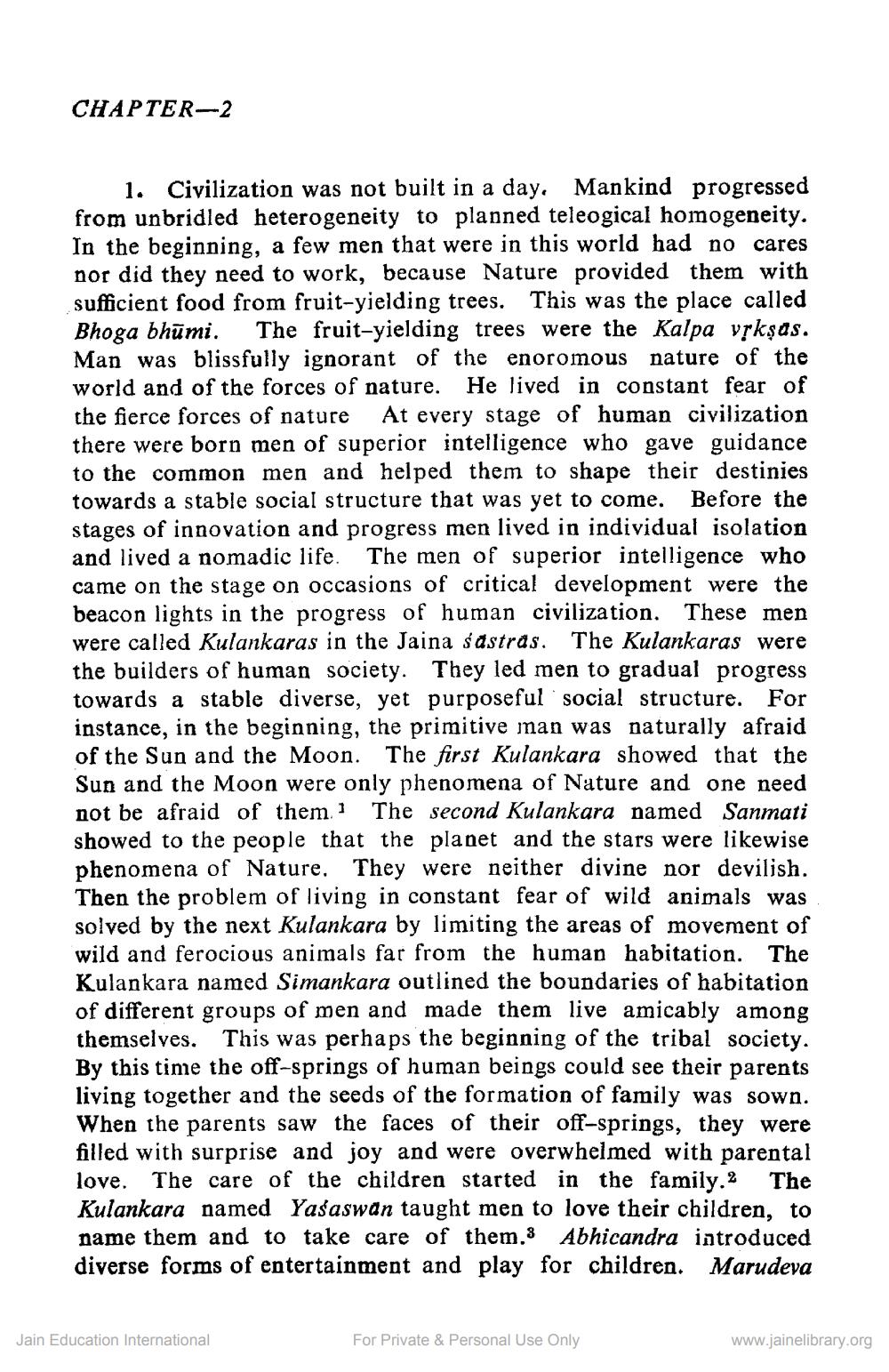________________
CHAPTER-2
1. Civilization was not built in a day. Mankind progressed from unbridled heterogeneity to planned teleogical homogeneity. In the beginning, a few men that were in this world had no cares nor did they need to work, because Nature provided them with sufficient food from fruit-yielding trees. This was the place called Bhoga bhūmi. The fruit-yielding trees were the Kalpa vṛkṣas. Man was blissfully ignorant of the enoromous nature of the world and of the forces of nature. He lived in constant fear of the fierce forces of nature At every stage of human civilization there were born men of superior intelligence who gave guidance to the common men and helped them to shape their destinies towards a stable social structure that was yet to come. Before the stages of innovation and progress men lived in individual isolation and lived a nomadic life. The men of superior intelligence who came on the stage on occasions of critical development were the beacon lights in the progress of human civilization. These men were called Kulankaras in the Jaina sastras. The Kulankaras were the builders of human society. They led men to gradual progress towards a stable diverse, yet purposeful social structure. For instance, in the beginning, the primitive man was naturally afraid of the Sun and the Moon. The first Kulankara showed that the Sun and the Moon were only phenomena of Nature and one need not be afraid of them. 1 The second Kulankara named Sanmati showed to the people that the planet and the stars were likewise phenomena of Nature. They were neither divine nor devilish. Then the problem of living in constant fear of wild animals was solved by the next Kulankara by limiting the areas of movement of wild and ferocious animals far from the human habitation. The Kulankara named Simankara outlined the boundaries of habitation of different groups of men and made them live amicably among themselves. This was perhaps the beginning of the tribal society. By this time the off-springs of human beings could see their parents living together and the seeds of the formation of family was sown. When the parents saw the faces of their off-springs, they were filled with surprise and joy and were overwhelmed with parental love. The care of the children started in the family.2 The Kulankara named Yasaswan taught men to love their children, to name them and to take care of them.3 Abhicandra introduced diverse forms of entertainment and play for children. Marudeva
Jain Education International
For Private & Personal Use Only
www.jainelibrary.org




